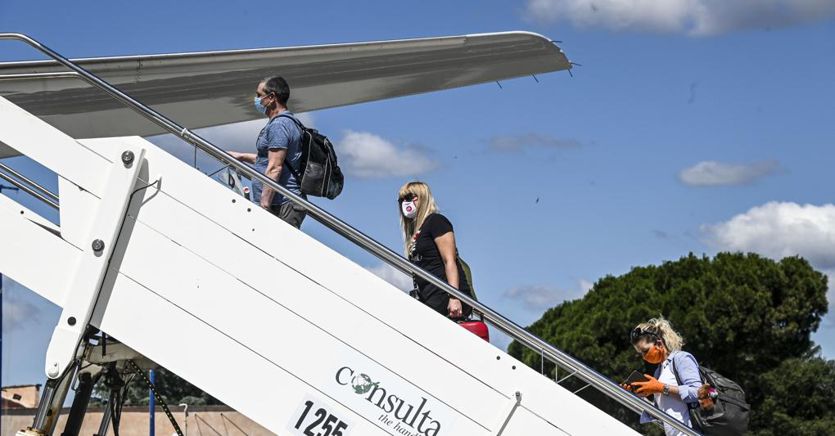More than a year after the outbreak of the pandemic, air transport companies are doing i
you count with the cost of the crisis. The drastic reduction in traffic has had heavy repercussions not only on airlines, but also on service companies, from airports, to catering, to oil companies that deliver fuel to aircraft: only for the handling sector, it has been calculated that the average drop in turnover was 85% with a loss of approximately 400 million euros.
The measures put in place for the emergency
To cope with the emergency in the months in which air traffic has been eliminated, companies have resorted to all ordinary and extraordinary instruments, starting with social safety nets, in particular the Extraordinary Redundancy Fund (Cigs) which allows for the air sector. access to the Flight Fund, the special Fund to support the income and employment of air transport personnel. This fund provides for the integration of the treatment received by INPS up to 80% of the salary in cases of reduced working hours, temporary suspension of activities or mobility processes. following the outbreak of the pandemic with the “Cura Italia” decree, it provided for a generalized system of special social safety nets, including the Covid redundancy fund (Cigd), linked exclusively to the pandemic emergency. Air transport companies have also been able to access this tool, but in fact no one has used it.
Loading…
Redundancy fund in derogation little used
Access was limited by the fact that in the event of an appeal to the Covid Fund as an exception, as confirmed by INPS and the Ministry of Labor, the integration of the Flight Fund for employees. Since a trade union agreement is required to take advantage of this tool, in no case was it possible to reach it as it was preferred to choose the Cigs and be able to safeguard the wage supplement provided by the Fund. In fact, the entire sector, underlines Vito Mangano , general manager of Assohandlers, “was excluded from access to the wide range of tools prepared by the Government, finding himself forced to resort to unsuitable solutions to deal with the peculiarity of the emergency”. Some opening to find a solution had emerged from the latest budget law which introduced the rule for accessing the integration of the Flight Fund also in the case of the Cassa in derogation, reaffirmed by the recent Sostegni decree.
Additional costs for companies in the sector
“However, the illustrative report of the Sostegni decree specified that companies engaged in the aviation sector can use the Covid exemption Fund only after having exhausted the salary integration tools they normally access”, explains the lawyer Enrico Boursier Niutta, leaving the field open to the traditional Extraordinary Redundancy Fund. Which obliges companies to pay an additional contribution that for the year 2020 alone was estimated at 30 million euros for companies in the sector to which is added the advance paid to their employees of the Cigs allowance, but due by INPS and that the companies had to pay to cope with the emergency.
According to Assohandlers, the companies in the sector have not been able to benefit from any special instrument for the Covid emergency and the support of 50 million euros (below the amount allocated for other sectors of the sector) provided for in the latest budget law “is totally insufficient in a context in which air transport analysts agree in predicting a return to pre-Covid traffic levels no earlier than 2024 “.
